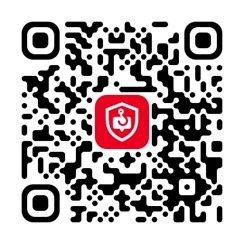How scammers gain access and hack your WhatsApp account and what you can do to protect yourself

WhatsApp has become essential to our daily communication, making it incredibly convenient to stay connected with friends and colleagues worldwide. With over 2.78 billion monthly active users across 180 countries, WhatsApp is the most popular mobile messenger app, 140 billion messages being exchanged daily.
However, WhatsApp is also a playground for hackers and scammers. To protect yourself from potential attacks, it's essential to understand how WhatsApp hacking works.
Has anyone tried to scam you on WhatsApp?
Hackers can break WhatsApp by tricking users into giving away verification codes, using spyware, sending malware as attachments, or even cloning your phone or WhatsApp account. However, an attack is successful only after you interact with the attacker in some way, such as clicking on a link, downloading a file, or responding to a message. Therefore, when you receive a suspicious message, the best action is to report and delete it.
Here are the most common ways hackers attempt to steal data, launch scams and ransomware, or spread malware on WhatsApp.
- Social Engineering - WhatsApp number hack
Social engineering is a method of manipulating people to extract sensitive information, such as passwords or verification codes. In the context of WhatsApp, hackers can register your number on their device and request a verification code to access your account.
How it works. Hackers register your number on the WhatsApp application by downloading the app to their phone, entering your telephone number, and getting the verification code to access the account. The verification code is sent to your phone, and then the hacker will try to trick you into handing over the code.
How to protect yourself. If you receive a text message with a WhatsApp verification code and one of your WhatsApp contacts immediately contacts you, asking you to share the verification code, don't give it. Because once you do it, the hacker can use it to access your WhatsApp account.
2. WhatsApp Forward Call
"WhatsApp Forward Call" is a method hackers use to gain access to a victim's account and all incoming calls.
How it works: You may receive a message, email, or phone call that tricks you into dialing a number with a Man Machine Interface (MMI) code. If you fall for the trick and make the call, your calls will automatically be forwarded to the attacker's number. After the attacker has forwarded your calls to their phone, they can install WhatsApp, register your number, and request a verification code by phone call.
How to protect yourself. Avoid responding to messages or requests from unknown contacts. Also, avoid calling unknown numbers.
3. WhatsApp Web hacking
Another popular method is hacking WhatsApp's web version. To access and log in to WhatsApp Web, users have to scan a QR code that appears on the web browser service.
How it works. Hackers take the QR code from WhatsApp Web and place it on a malicious page. If you scan that fake QR code using WhatsApp — or sometimes even with your phone camera, they can steal your login credentials and use them to hack your account.
How to protect yourself. Before scanning, check any QR code before scanning it. You can use Bitdefender Scamio to confirm whether a QR code is genuine.
4. WhatsApp Spyware
Hackers can use spyware to access the victim's WhatsApp account by installing it on their device.
How it works. The most common ways people unintentionally infect their phones with spyware are through malicious links, third-party apps, and email attachments they click and/or download. Once installed, the spyware can record the victim's WhatsApp messages and send them to the hacker, who can gain access to messages, audio, statuses, photos, videos, and more.
How to protect yourself. Protect your phone with a mobile security solution that detects and blocks malicious texts, messages, and links, scans webpages and apps, and alerts you in case of danger. Regularly review the permissions of the apps on your phone and check for any suspicious apps you do not remember installing.
5. WhatsApp Dark Web attacks
WhatsApp hacking tools and services are sold on the Dark Web, and so are personal information leaked in breaches, phone numbers included.
How it works. Fraudsters get all the information they need from the Dark Web and then get into WhatsApp accounts to get money from you or your family.
How to protect yourself. Check regularly whether your personal information is available online and take steps to minimize your digital footprint. Consider using a digital identity monitoring tool like Bitdefender Digital Identity Protection which can alert you in real-time when your personal information is on the public or Dark Web and help you take the necessary measures to reduce risks.
Real story: ‘I was a victim of the WhatsApp hack’
Faustin received a mysterious call over WhatsApp from a number he did not recognize. He searched for the number online and found the dialing code was from Sweden. When the unknown number called again, Faustin answered, and they hung up. Whenever he called back, no one answered. He realized something was wrong when he discovered that some of his phone files were missing.
How to know if your WhatsApp has been hacked
Several signs indicate someone has hacked your WhatsApp. Be cautious if you notice:
- Unfamiliar devices logged in to your account. Here's how to see all the devices remotely accessing your account: open WhatsApp on your phone, click on the three dots on the top right, and select Linked Devices. You can then log out of any suspicious devices by tapping on them.
- Strange and suspicious activity. Be wary of strange and suspicious activity, such as receiving unsolicited verification codes, strange messages from unknown contacts, or being told by one of your contacts that they received messages you didn't send. Other signs of suspicious activity include strange noises when making calls, calls from unknown numbers, and so on.
3. Poor phone performance. If you notice your phone is slower, crashes, freezes or your battery drains much faster than usual, this could mean that hidden applications are running in the background.
You can check which apps are running through Background App Refresh by going to Settings, selecting General, and clicking on Background App Refresh. From there, you can switch off any suspicious apps.
How to make your WhatsApp more secure:
1. Enable 2FA. Two-factor authentication (2FA) is a must for WhatsApp. To enable it, open the WhatsApp app on your iPhone or Android device. Navigate to Settings > Account > Two-Step Verification, and tap Enable.
- Watch out for scams and phishing attempts. Be cautious about voice calls, messages, links, or files received on WhatsApp, especially if they come from unknown sources. Only interact with them after making sure they are ok.
3. Add Bitdefender Scamio to your WhatsApp list. This tool can help you detect potential scams by analyzing requests, situations, links, texts, or images you receive in your chat. Scamio uses advanced AI technology to determine whether the content is safe.
To add Scamio as a contact in your WhatsApp list, scan the QR code below:

or click on Chat with Scamio. Then you can send it text to analyze.
Scamio is free and also available on your web browser or Facebook Messenger, so share it with your loved ones and keep them safe, too.
tags
Author
Cristina is a freelance writer and a mother of two living in Denmark. Her 15 years experience in communication includes developing content for tv, online, mobile apps, and a chatbot.
View all postsRight now Top posts
Start Cyber Resilience and Don’t Be an April Fool This Spring and Beyond
April 01, 2024
Spam trends of the week: Cybercrooks phish for QuickBooks, American Express and banking accounts
November 28, 2023
FOLLOW US ON SOCIAL MEDIA
You might also like
Bookmarks








